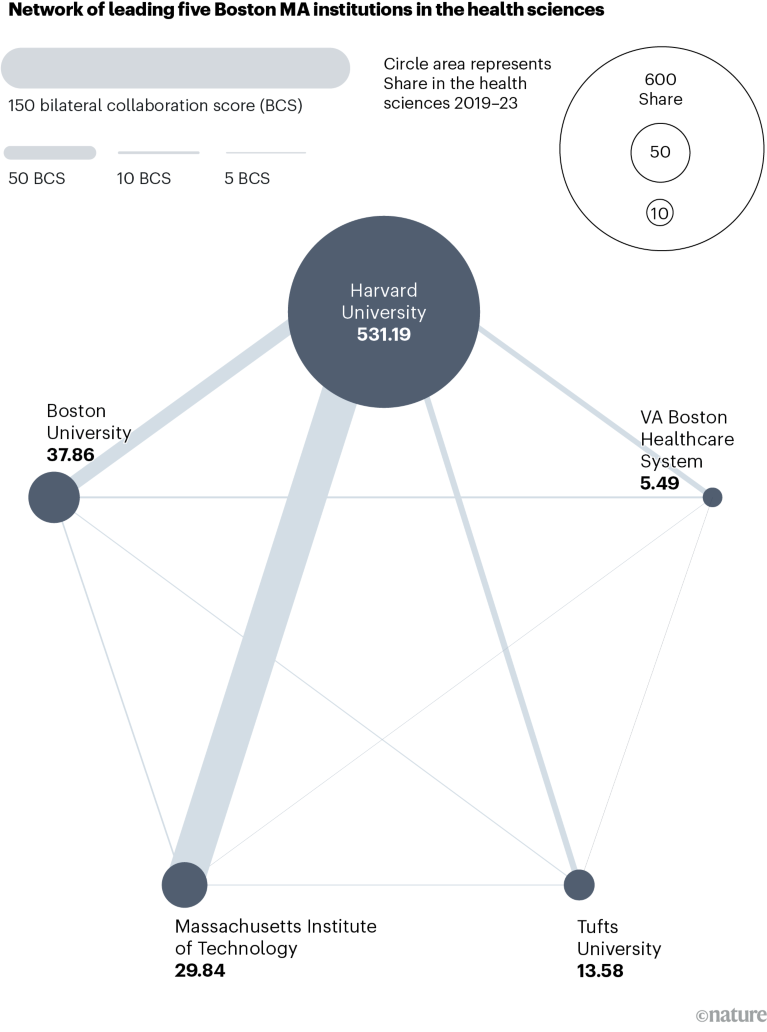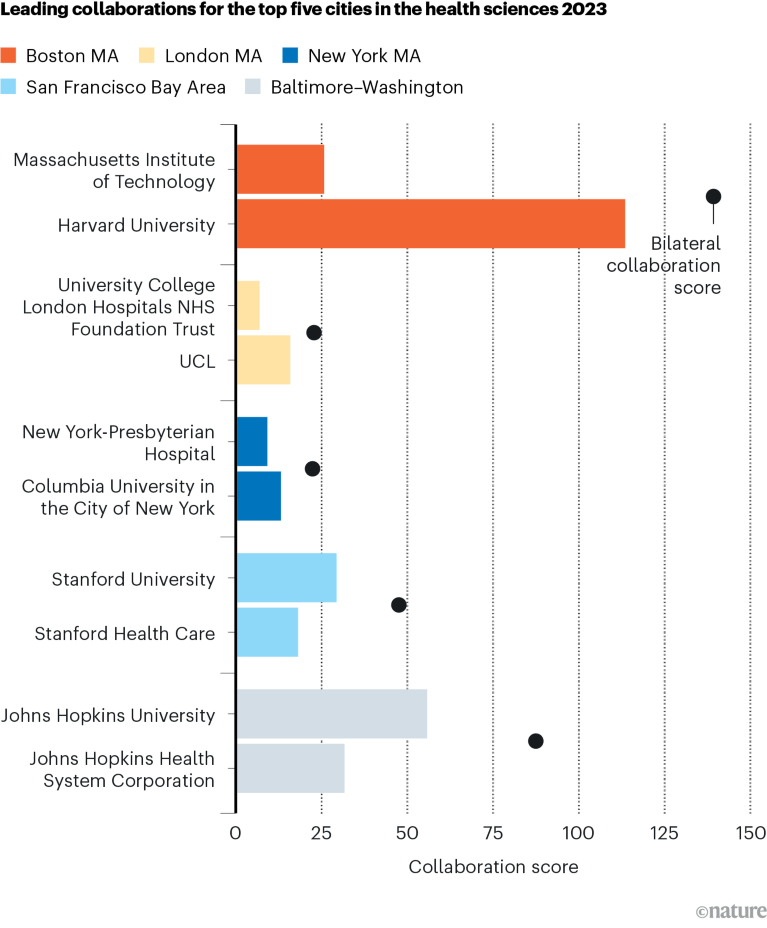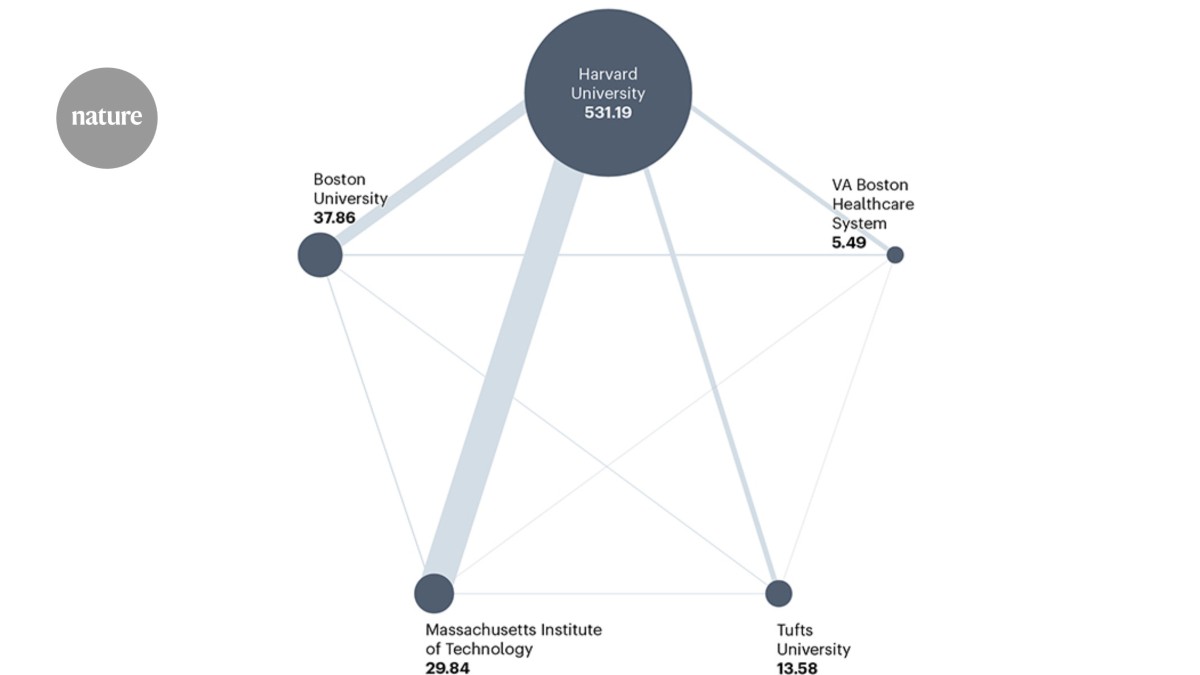Due in part to strong institutional collaborations and industry presence, the United States has maintained its lead in health sciences, with the Boston metropolitan area (MA) taking the top spot with a Share of 676.43. However, the Massachusetts capital — which is home to numerous biotech companies, leading universities, and more than 20 hospitals — is the only US city within the top 10 to have recorded an increase in adjusted Share between 2022 and 2023 (+6.6%). The New York MA and Baltimore–Washington, the 2nd and 3rd-ranked cities, respectively, have both recorded minor declines in their adjusted Share since 2022, while the San Francisco Bay Area, in 5th place after the London MA, has recorded a decrease in adjusted Share of 13.2% between 2022 and 2023.
China is one to watch in the health-sciences space. Although Beijing, China’s leading health-care city, in 6th place, is still more than 430 Share points away from the Boston MA, it has recorded an increase in Share of 17.6% between 2022 and 2023.
Copenhagen is one of the fastest rising cities in health sciences, increasing its adjusted Share by 33.9% between 2022 and 2023. Denmark boasts a remarkably large health-care sector for its relatively small size, which will put it in good stead for continued growth in the subject.
Much of the Boston MA’s strength in the health sciences comes from the collaboration between the Massachusetts Institute of Technology (MIT) and Harvard University — by far the city’s most significant partnership in the subject. Harvard is a pillar of health-science research in the city and is involved in its four leading institutional partnerships in the health sciences.

Source: Nature Index; Data analysis: Aayush Kagathra; Data visualization: Tanner Maxwell and Simon Baker
The Harvard–MIT match up also significantly outperforms other leading cities’ top collaborations in the subject, with a BCS of 139.24. Baltimore–Washington’s top institutional partnership, between the Johns Hopkins University and Johns Hopkins Health System Corporation (BCS 87.45), is the second-strongest pairing.
London’s leading research collaboration, between University College London and the University College London Hospitals NHS Foundation Trust (BCS 22.81) is almost equal to the New York MA’s Columbia University and New York–Presbyterian Hospital pairing (BCS 22.37).

Source: Nature Index; Data analysis: Aayush Kagathra; Data visualization: Tanner Maxwell and Simon Baker
This article is part of Nature Index 2024 Science cities, a supplement produced with financial support from the Beijing Municipal Science & Technology Commission, Administrative Commission of Zhongguancun Science Park. Nature maintains full independence in all editorial decisions related to the content. For more information about Nature Index, see the homepage.


